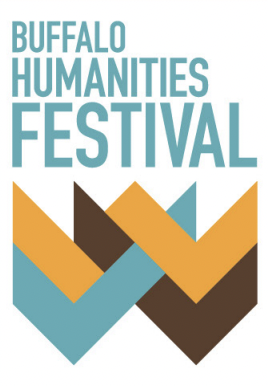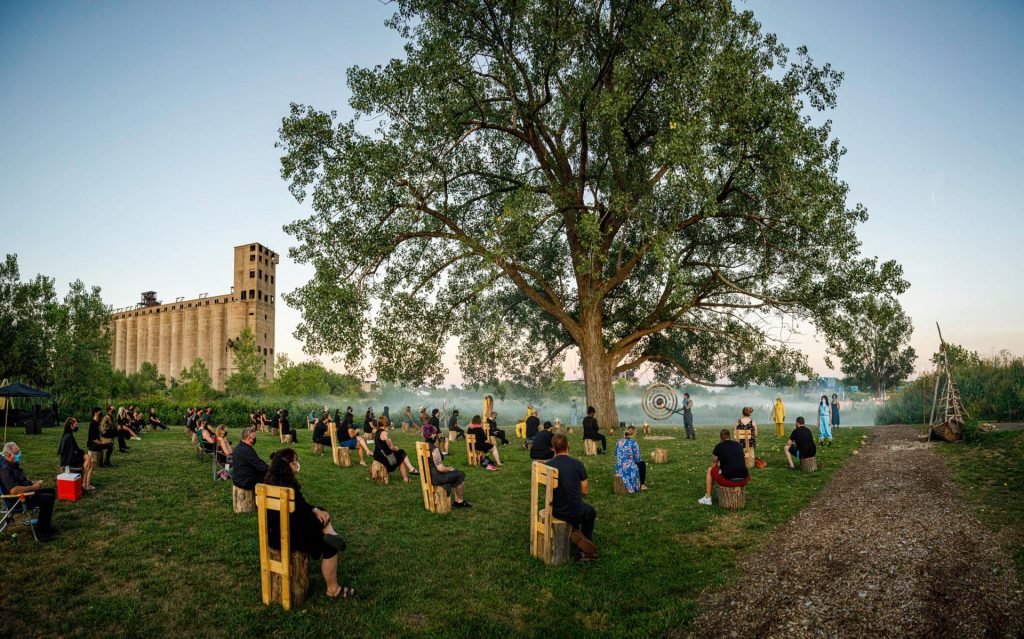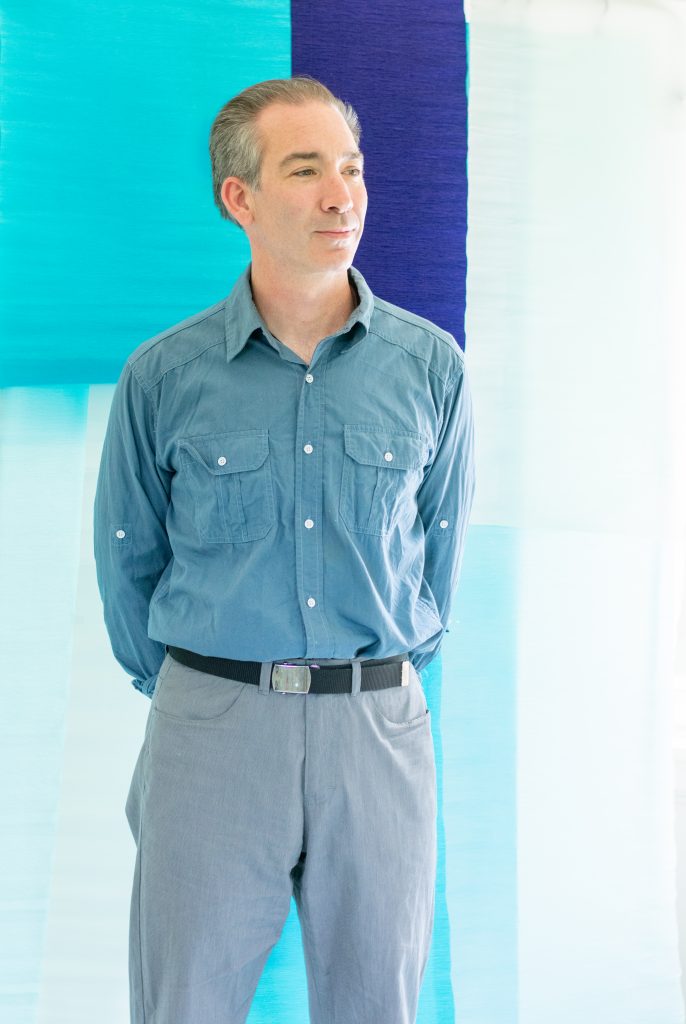The eighth Buffalo Humanities Festival—centered around the theme of “Uptopia” this year—featured a cross-disciplinary presentation by Daemen entrepreneurship and political science faculty. 
The session, titled “Ritual and Place: Towards a Utopian Policy,” was delivered by Dan Shanahan, assistant professor and program director for entrepreneurial studies in the Department of Visual and Performing Arts, co-founder and artistic director of Torn Space Theater, and a steering committee member of the festival; and Lisa Parshall, professor of political science and pre-law director at Daemen and a public policy fellow at the Rockefeller Institute of Government.
The panel tackled its topic with complementary presentations by the two faculty: Shanahan focused on the formation of utopian societies by way of public ritual and Parshall spoke about matters relating to the dissolution of village governments—which is also the subject of her upcoming book manuscript that’s under contract.
When village residents decide to consider dissolving their common municipal entity, Parshall explained, the vote (and the outcome) often come down to matters that are as much emotional as they are a consideration of cost savings associated with one less layer of government, lower taxes, and the prospect of efficiencies to the delivery of public services.
What can contribute to the emotions and attachments that some feel in deciding to maintain their villages is storytelling—the use of narrative strategies to conjure a need to preserve community history and identity.
“When it comes down to the actual debate and decisions, there are often deeper meanings associated with local governments and psychological attachments,” said Parshall.
It’s an uphill climb to dissolve a village, she said, and fewer than 40 percent of efforts succeed in New York State. Parshall suggested that a greater role by creative and cultural organizations in these debates could affect outcomes.
Parshall’s talk echoed with Shanahan’s focus on the creative use of spaces, places and their meanings—rooted in the history of efforts to create communities in the late 1800’s Pre-Progressive Era in the U.S.; it’s exactly this type of crossover between disciplines that makes events like the humanities festival so interesting and worthwhile, said Parshall.
“When we come at subject matter from different perspectives it helps shape our thinking in new ways,” she added.
Hosted at Silo City this year in downtown Buffalo, the humanities festival was presented by the University at Buffalo and featured many academic partners, including Daemen, SUNY Buffalo State, Canisius College and Niagara University.


